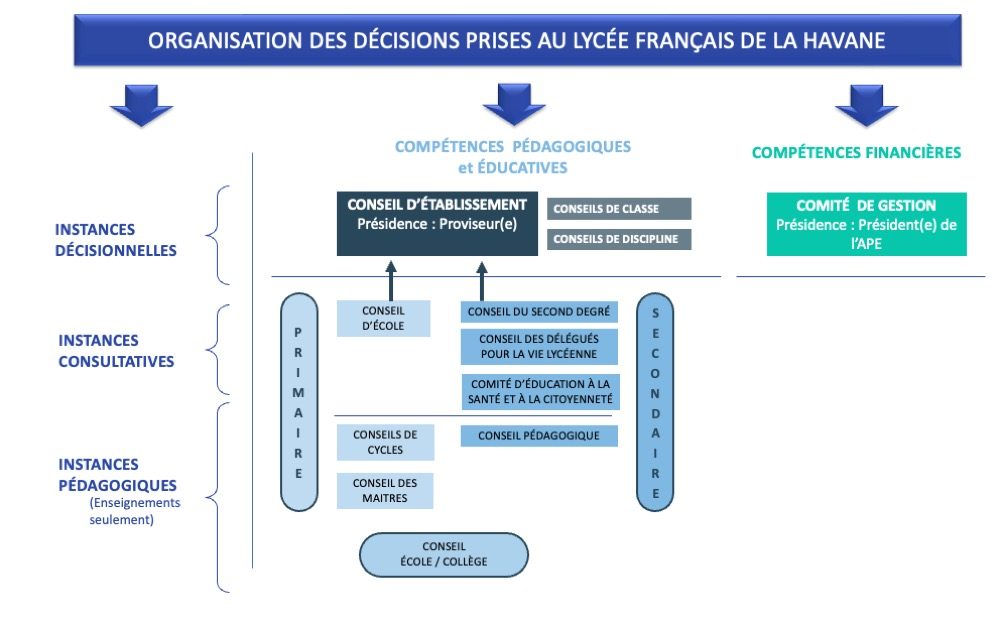
Who can stand for election? All parent members of the APE.
Frequency of meetings: 1 meeting per month
The main decision-making body that regulates the school’s affairs (pedagogical and educational), it is responsible for the first and second levels, in particular for voting on the school rules, the school project, timetables and the school calendar… It is made up of elected parents, representatives of the administration, teachers and staff, student representatives and the French Embassy.
Who can stand for election? All parents.
Frequency of meetings: 1 council per term.
Number of candidates required: 3 parents, each of whom nominates a substitute.
Election date: last week before the October holidays, by post or at school.
An advisory body that gives its opinion on school time, the school calendar, activities, projects, etc. It is made up of one parent per class (with a deputy) and the primary school teachers.
Who can stand for election? All primary school parents.
Frequency of meetings: 1 meeting per term.
Number of candidates required: 1 parent per class.
Election date: last week before the October holidays, by post or at school.
An advisory body that prepares the work of the School Council, educational structures, the school calendar, the school project and overnight educational trips. It is made up of representatives of the administration, staff, teachers and students.
All parents of secondary school pupils.
Frequency of meetings: 1 meeting per term.
Number of candidates required: 2 parents and their deputy from the members of the School Council.
Election date: last week before the October holidays, by post or at school.
The CVC discusses all issues relating to school work and the living conditions of students in the school. It is made up of representatives of the administration (headteacher or CPE), staff, students and parents (for the CVC only).
Frequency of meetings: 1 meeting per term.
A body for reflection, observation and proposals that designs, implements and evaluates an educational project in the areas of citizenship and health education and violence prevention, as part of the school project. It is made up of representatives of the administration, staff, parents and students.
Frequency of meetings: 2 committee meetings per year
Council responsible for monitoring students and educational issues relating to the life of the class.Chaired by the head teacher (or CPE); made up of members of the teaching staff, parent representatives and student delegates.
The Council is responsible for imposing all the sanctions provided for by current regulations and set out in the school’s internal rules on pupils. It is made up of representatives of the administration, staff, parents and students.
Its role is to examine the situation of a pupil whose behaviour is not in keeping with the rules of school life and to encourage the search for a personalised educational response. The school head appoints the members.
It is consulted on compliance with health and safety legislation.

NB: other councils exist but only concern teaching teams (school/college council, teachers’ council, cycle council, class council, pedagogical council, etc.).